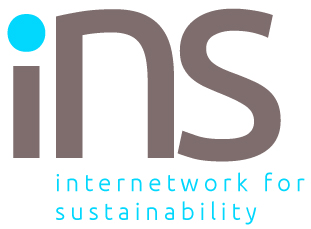Data centers are notorious for their power consumption and their effect on climate change. But the explosive growth of AI, propelled by Microsoft, Google, and the like, adds an extra dimension. According to the International Energy Agency, AI’s electricity consumption could double by 2026 and power usage is expected to grow by 13-15% annually until 2030. Such rising demand for electricity, particularly in the U.S., may outpace supply. However, that is only one problem.
To address this, tech companies are turning to nuclear energy. Microsoft, for example, wants to reactivate a reactor on Three Mile Island, while Amazon plans to build data centers near another nuclear power plant. Prominent figures like Sam Altman, CEO of OpenAI, also invest in nuclear startups, signaling a broader trend in the tech industry.
Still, safety concerns linger, shaped by historical incidents like the 1979 Three Mile Island partial meltdown. While nuclear energy may be seen as a solution for AI’s growing power needs, more worrying is the time it will take for these new projects to become operational, leaving data centers reliant on fossil fuels. Given experience with nuclear power construction, that period can be as long as 20 years, leading to serious climate change concerns.
Data centers emit seven times more than reported
Concerns, of which we don’t even know the full extent, as The Guardian reports about the substantial underreporting of emissions by the data sector. Actual emissions were calculated up to seven times higher than reported and will rise further as AI technology grows.
Despite claims of carbon neutrality by companies like Google, Microsoft, Meta, and Apple, from 2020 to 2022, the real emissions from their company-owned data centers were 662% higher than officially stated, with Amazon being the largest emitter overall.
Data centers already account for 1-1.5% of global electricity consumption, and with AI workloads requiring significantly more energy (e.g., a ChatGPT query uses 10 times the electricity of a Google search), emissions and energy use are expected to skyrocket by 2030. Goldman Sachs predicts a 160% increase in power demand from data centers by 2030, with emissions potentially reaching 2.5 billion metric tons of CO2 equivalent, or 4% of the world’s total emissions.
Tech companies use creative accounting methods, such as purchasing renewable energy certificates (Recs), to claim reductions in emissions. However, these do not always reflect the actual carbon footprint. While some companies, like Google and Microsoft, are pushing for more accurate carbon accounting, others, like Amazon and Meta, favor more lenient methods.
As energy demand rises, particularly due to AI and crypto, Big Tech’s reliance on fossil fuels is likely to continue, as renewable energy infrastructure struggles to keep up with the growing demand. And while nuclear energy is not yet available, fossil emissions will skyrocket, reducing climate pledges to greenwash, if not gaslighting.
LNG cleaner than coal? Not really
Some will mention that a transition period could be fueled by LNG, as a less polluting alternative to coal. But no. A new research paper challenges the fossil fuel industry’s claim that liquefied natural gas (LNG) is a cleaner alternative to coal. The study finds that exported LNG emits 33% more greenhouse gases over a 20-year period compared to coal, contradicting the view that gas is a “bridge” fuel for transitioning to cleaner energy.
According to Robert Howarth, an environmental scientist from Cornell University, the entire LNG process—from drilling and transporting gas to supercooling and shipping—produces far more emissions than previously estimated. Methane leaks, a potent greenhouse gas, significantly contribute to this impact. The research concludes that LNG expansion is not compatible with global climate goals, calling for a halt in its use. Despite this, the US remains a leading LNG exporter, with industry advocates promoting it as a climate solution. However, this study has sparked political debate, influencing the Biden administration’s pause on new LNG export permits.












